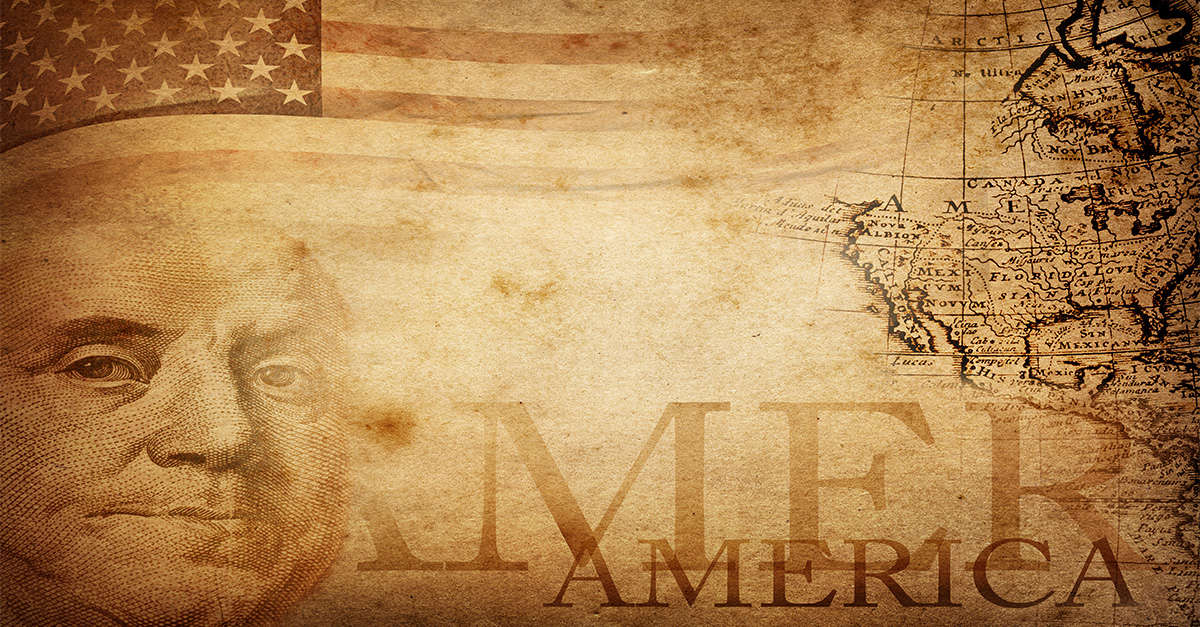


Get a free copy of Parental Rights & Education when you subscribe to our newsletter!

Turns out that when it comes to knowing the facts about America’s Christian roots, this self-described atheist could have benefited from a few homeschooling lessons.
Secular elites have a longstanding reluctance to acknowledge Christianity’s impact on America, but that reluctance has escalated into outright denial with Mike Johnson’s unexpected rise to prominence.
Given Maher’s media clout and tendency to propagate misleading narratives about our country’s origin story, we’ll scrutinize his latest outburst.
Let’s begin.
On a recent episode of “Real Time,” the sharp-tongued comedian said:
“Mike says we began as a Christian nation. We didn’t. Did you miss that day in homeschool, Mike? If you don’t know that the Pilgrims came here to get away from the Church of England, then you don’t know, literally, the first thing about our country.”
But if the Pilgrims intended to establish a new order completely devoid of religious considerations, their opening charter, the Mayflower Compact, tells a different story.
Here’s part of it:
“IN THE NAME OF GOD, AMEN. We, whose names are underwritten… Having undertaken for the Glory of God, and Advancement of the Christian Faith… a Voyage to plant the first Colony in the northern Parts of Virginia…”
Therefore, according to Maher’s bizarre analysis, when the pilgrims set foot in the New World with a mission “for the glory of God” and the “advancement of the Christian faith,” their real agenda was to dismantle Christianity and cultivate a secular government.
And it’s Mike Johnson who’s accused of being ignorant of the “first thing about our country?”
Next up, the avowed atheist argued that,
“Mike says being a Christian nation is our tradition and it’s who we are as a people. It’s not. We’re the people who have a First Amendment which says, ‘Congress shall make no law respecting an establishment of religion.’ And we have an Article Six which says, ‘no religious test shall ever be required as a qualification to any office.’”
Is Bill Maher unaware that several of the original 13 colonies had their own religious affiliations, such as Anglicanism and Congregationalism, when they broke away from the British crown?
Shoot, in North Carolina, the state constitution explicitly barred anyone from “holding any office” if they denied “the being of God or the truth of the Protestant religion, or the divine authority of the Old or New Testaments.”
These religious mandates gradually faded in the 19th century, yet they played a significant role in the fabric of early American society.
Maher seems to miss that the First Amendment was specifically directed at Congress, preventing the federal government from engaging in sectarian disputes — a chief reason the Pilgrims and Puritans sought a new life in America.
This doesn’t imply that the U.S. Constitution was devoid of a Christian moral underpinning.
It was adopted “in the Year of our Lord,” after all, and was designed, as John Adams put it, for “a moral and religious people. It is wholly inadequate to the government of any other.”
Lastly, in what he perceives as a knockout blow against Johnson, Maher boldly claims,
“But then they have to take John Adams at his word when he wrote, ‘The government of the United States of America is not in any sense, founded on the Christian religion.’”
Now, if we take this statement at face value, it seemingly conflicts with Adams’ remark above and is at odds with what he told Thomas Jefferson in an 1813 letter: that the “general Principles, on which the [founding] Fathers Achieved Independence, were… the general Principles of Christianity.”
So, was Adams contradicting himself, or is context key here?
It’s undoubtedly the latter.
To begin with, Adams didn’t personally state what Maher attributes to him.
That sentence is plucked from the “Treaty of Tripoli,” signed during Adams’ presidency, and meant to stop the Barbary pirates from raiding American ships.
Historians point out that a central objective of the treaty was to reassure Muslim territories that the agreement “was between two sovereign states, not between two religious powers.”
In other words, the treaty was to downplay any fears that another “Holy War” was on the horizon. This interpretation is evident from the comprehensive wording of the clause — the portions that Maher left out:
“As the government of the United States of America is not in any sense founded on the Christian Religion,-as it has in itself no character of enmity against the laws, religion or tranquility of Musselmen and as the said States never have entered into any war or act of hostility against any Mehomitan nation, it is declared by the parties that no pretext arising from religious opinions shall ever produce an interruption of the harmony existing between the two countries.”
Just don’t take my word for it, though.
Christopher Hitchens, a formidable atheist of his time, acknowledged in 2006 that “those secularists like myself who like to cite this treaty must concede that its conciliatory language was part of America’s attempt to come to terms with Barbary demands.”
When the pact was violated by Muslim pirates, prompting the deployment of the Marines and Navy, another agreement was drafted in 1805.
Notably absent from the new treaty?
The “conciliatory language” that “The government of the United States of America is not in any sense founded on the Christian Religion.”
The U.S., by this point, was in a stronger diplomatic position.
There’s a reason why we say context matters — because it often does.
Speaking of treaties, however, those in Maher’s camp, if they’re being honest, must also confront other historical agreements that refute their anti-Christian bias.
Take, for example, the post-Revolutionary War peace treaty with Great Britain, the one that officially recognized America as a sovereign nation. It starts off with the phrase, “In the name of the Most Holy and Undivided Trinity,” and features the signatures of leading statesmen, including John Adams.
Or how about the 1824 treaty involving the United States and the Russian Empire at the time? It begins with a nearly identical introduction: “In the name of the Most Holy and Indivisible Trinity.”
Then there’s the 1848 peace treaty with Mexico, which opens with the invocation, “In the name of Almighty God.”
Such explicitly religious references in global peace treaties are quite contradictory for a nation allegedly intent on downplaying Christian values.
It appears that Bill Maher could benefit from a bit of homeschooling himself, huh?
If you like this article and other content that helps you apply a biblical worldview to today’s politics and culture, consider making a donation here.

Notifications